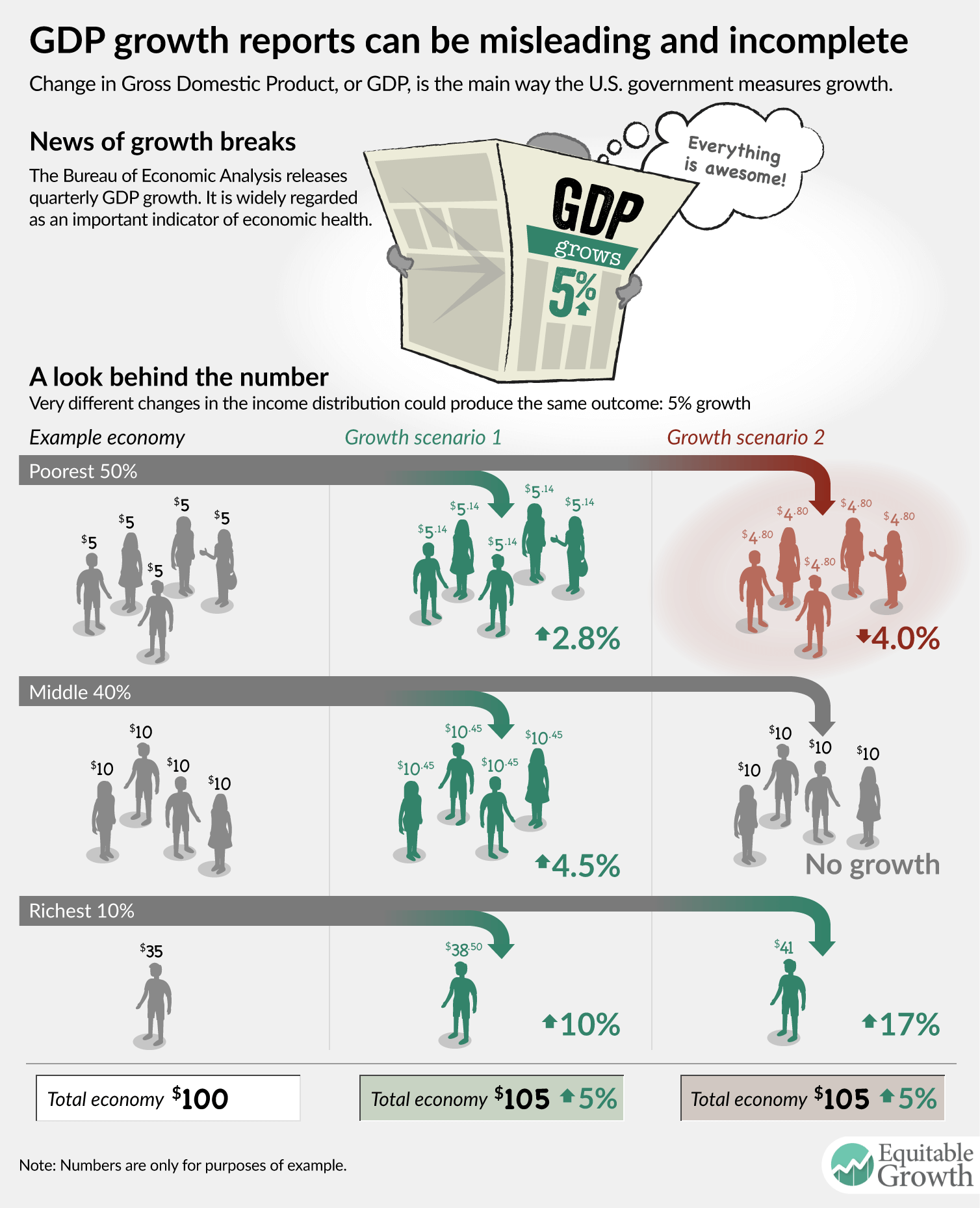Weekend reading: the “fiscal highlights” edition
This is a weekly post we publish on Fridays with links to articles that touch on economic inequality and growth. The first section is a round-up of what Equitable Growth published this week and the second is the work we’re highlighting from elsewhere. We won’t be the first to share these articles, but we hope by taking a look back at the whole week, we can put them in context.
Equitable Growth round-up
This week’s Working Paper release focuses on the effectiveness of government incentive programs to attract new investments and new businesses. University of Texas at Austin’s Nathan Jensen argues that the Texas Chapter 313 (tax abatements) program attracted 15 percent of firms while the other 85 percent would still have been invested without this incentive program.
GDP growth for the third quarter of 2017 was released this morning. Austin Clemens explains why GDP growth can be a misleading indicator of what’s actually happening in the economy and suggests that the government should expand what it measures.
Links from around the web
The Republican tax plan aims at stopping companies from shifting their revenue, investments, and employment to other countries. Rex Nutting argues that the Trump-Ryan plan will actually encourage more corporate offshore tax avoidance. [MarketWatch]
Should economists have predicted the Great Recession? A Princeton University working paper argues that in the 1980s and the early 1990s—a period with a significant rise in lending followed by a recession—could have predicted the severe 2007-2009 economic downturn. [Woodrow Wilson School]
The Republican tax plan would raise average household income, according to the White House Council of Economic Advisers. Larry Summers says the numbers don’t add up and other economists, including Jason Furman, pointed to the extreme optimism of the White House’s projections. [The New Yorker] [The Wall Street Journal]
Thomas Piketty’s review of historical economic data launched a wide discussion on wealth and income inequality. Now Richard Sutch has completed a review of Piketty’s evidence that he says shows Piketty’s data on 19th century wealth in America is unreliable. Noah Smith reviews the evidence and what it might mean for Piketty’s theory. [Bloomberg View]
The American Dream seems to have come to an end. Nowadays, only 50 percent of U.S. children will do better, economically speaking, compared to their parents. Stanford University’s Raj Chetty argues that chances of succeeding vary widely between zip codes and that’s why solutions to economic mobility have to be local. [CityLab]
Both the House and the Senate have now passed budgets that make tax reform possible. As Republican talked about a tax abatements on repatriated foreign income, Martin Sandbu argues that companies’ foreign profits are actually not trapped offshore. [Financial Times]
A recent working paper released by Amanda Bayer and David Wilcox addresses the unequal economic education distribution among U.S. college graduates. [The Fed]
The Federal Reserve Board is supposed to be independent of U.S. political institutions. But According to Sarah Binder and Mark Spindel, the Federal Reserve’s independence is largely a myth. [The Upshot]
Friday figure

From “Here’s why you should interpret tomorrow’s GDP growth estimate skeptically” by Austin Clemens.

